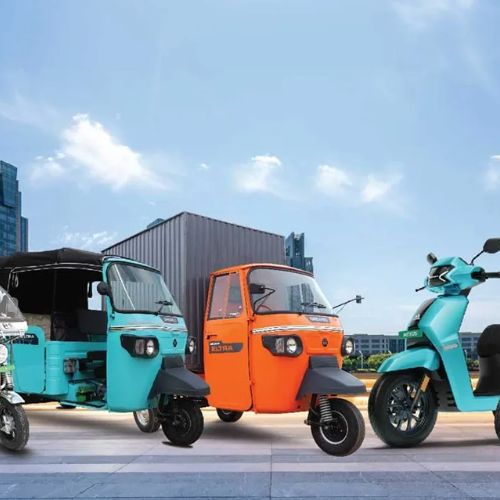BluSmart, an Indian ride-hailing firm, is attempting to compete with Uber and Ola for market share in the nation by placing investments in an all-electric taxi fleet and making an aggressive effort to woo customers and drivers away from the competition.
The administration of Prime Minister Narendra Modi is likely to make big changes to India’s transportation sector in the coming years, with considerable ramifications for ride-hailing companies.
Full conversion to electric vehicles (EVs) would certainly be a challenging task for market leaders Uber and SoftBank-backed Ola, which are both having trouble retaining drivers and satisfying customers.
By outperforming its competitors who use combustion engines in terms of electrification, cleanliness, and dependability through direct management of its fleet and drivers, BluSmart, a new entrant, hopes to seize the initiative. Drivers cannot, to begin with, cancel reservations made through the BluSmart app.
“BluSmart has improved service quality by providing timely, spotless automobiles. Owning your own fleet enables you to achieve that, according to Jasmeet Khurana, the World Economic Forum’s (WEF) initiative leader for mobility decarbonization. It utilized the switch to electricity to gain entrance.
According to a March private BluSmart investor presentation acquired by Reuters, “Uber is losing drivers, riders, and market share in India,” and its growth model of driver-owners is “crashing” under rising fuel prices.
Uber began operating in India in 2013 with low rates for customers and high pay for drivers. Ola, a domestic rival, debuted in 2010.
Both companies experienced great success in India but have now faltered as a result of high cancellation rates for riders and driver discontent over diminished financial incentives that led to many quitting.
In 2020, BluSmart electric cab service, supported by BP’s venture arm, began providing airport transportation in Delhi and later scheduled reservations. Bengaluru has also been added to the expansion.
80 percent of Delhi’s 2,750 new electric taxis registered between January and October 2022 belonged to BluSmart. Data from the consultant Redseer indicated that EVs made up 25% of the city’s new taxis, up from just 3% in 2019.
The capital is home to 22 BluSmart charging and parking hubs, one of which is on the top floor of a multi-level parking garage controlled by private security in an affluent suburb where more than 100 automobiles receive thorough cleaning every evening.
LEVELLING UP
According to Statista, the ride-hailing sector in India, which has a population of 1.4 billion, is presently worth $13.4 billion, or one-tenth that of China, and only has a penetration rate of 7%.
A few states are pushing for more green taxis, and Modi wants 30% of all new cars produced by 2030 to be electric.
According to its CEO, Anmol Singh Jaggi, BluSmart wants to expand into four additional cities, and increase its fleet size to 14,000 taxis the next year, and to 100,000 in five years. It also wants to offer more instant bookings, similar to Uber.
With 5,000 vehicles operating in just two cities, BluSmart claims to have a 9% market share of the ride-hailing industry in Delhi. With 300,000 users across more than 100 Indian cities, Uber holds a 43% national market share.
According to a business job posting on LinkedIn, Uber plans to have a 100% electric car fleet globally by 2040 and is aiming for more than 1 million such vehicles in India and South Asia, calling them “a key piece” of their regional expansion strategy.
In its initial effort, Uber said in February that it will introduce 25,000 Tata EVs into India and work with fleet managers to oversee their maintenance, just like BluSmart does.















